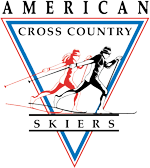Resources for
Join AXCS
The following is a translated and summarized from an article by Gjermund Hellerud originally appearing in Norway’s Langrenn.com, Dec. 26, 2002. Many thanks to Inge Scheve for translation and summary of this material.
AXCS Editor Notes:
a. For your best performances, figure out a routine that works for you. This means you need to experiment. Experimentation means you need to do more than 1-2 races a year (unless you plan to be racing for several decades at that pace). Races actually mean putting on a bib and dealing with the timeline, pressure, and "other humans" that come with an actual race environment. Only in that environment will you know than your routine really works when you want it to.
b. No training plan on the planet is perfect. Even if we had a perfect training plan, your life won't let you implement it because "stuff" is always going to get in the way. So whatever your routine is, make sure it's flexible, adaptable, and let's you roll with whatever comes your way.
****************************************************
Final Prep Before Major Events
How do you adjust your training during the season (for big events)? This question is hard to answer and probably has as many answers as there are skiers out there.
When I was young, coaches typically recommended rest for two days before an important race. Sometimes, this strategy worked for me, other times, it fell through. Then, the recommendation was rest only the day before the race. Others started experimenting with light fartlek sessions the day before race day.
The "perfect" success recipes goes on: intervals, running, strength, you name it.
I believe that as we age and have tried and failed enough times, most racers find a routine that suits their type. Most important: you have to develop a routine that you believe in and that provides security to you.
The psychological stress of entering a race is often underrated. Having a tried and trusted pre-race routine for the hours and minutes before start can have a huge impact on the race result. Over the course of my racing career, I have had my share of pre-race rituals and routines for race day as well as for theweeks and days leading up to the race. And although the rituals have evolved and changed with the reigning theories of what is physiologically most beneficial, the principle remained the same regardless of race technique or distance: it is comforting to know what to do.
If my rituals are messed up, I get stressed and restless. But that's just me. I'm not the impulsive type. I like to know what to do in skiing and in life in general.
